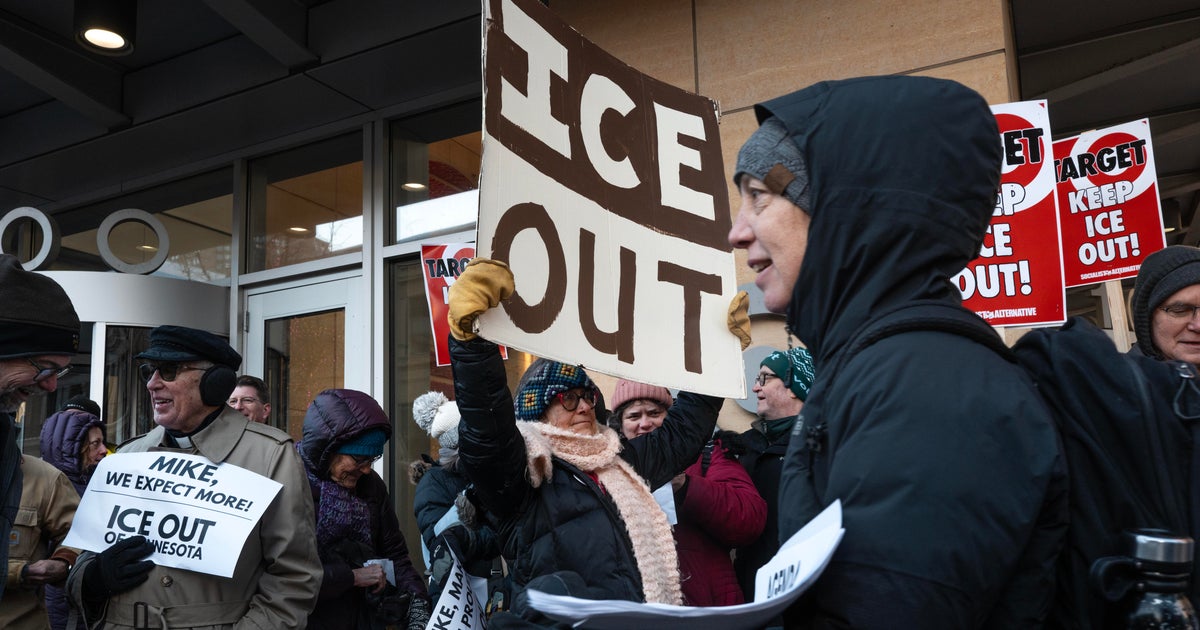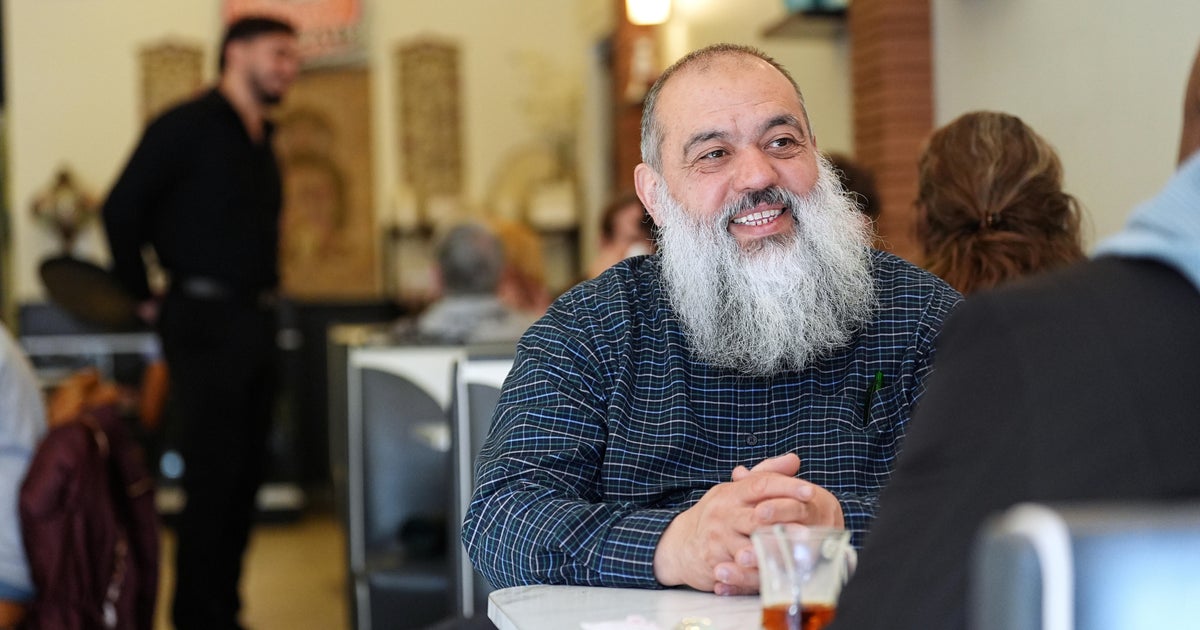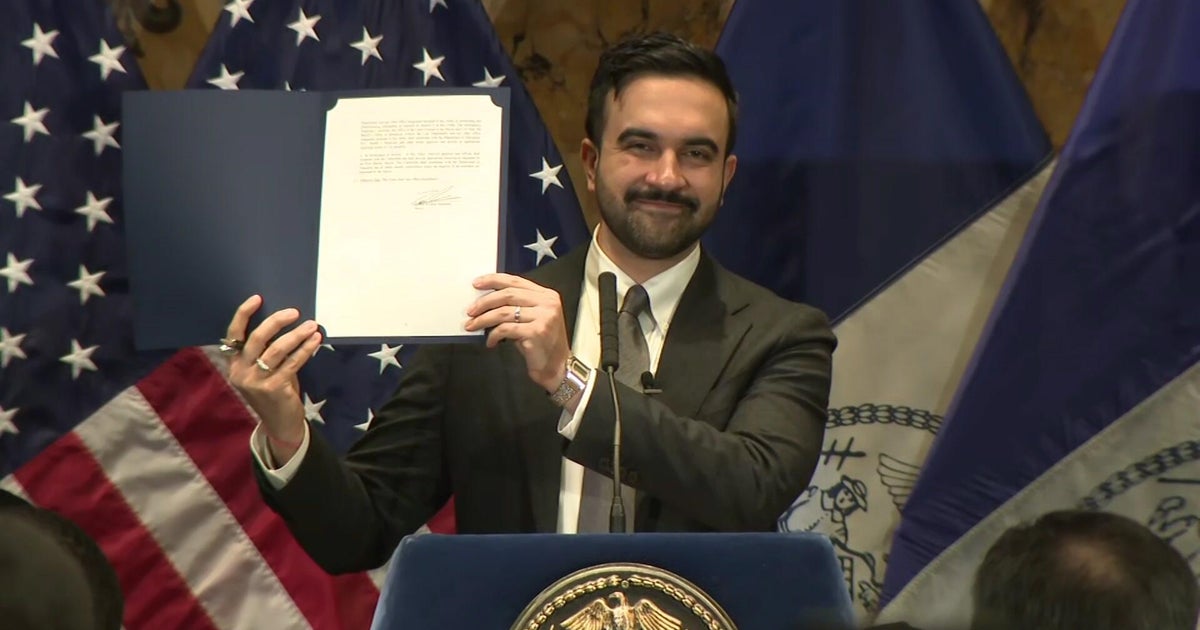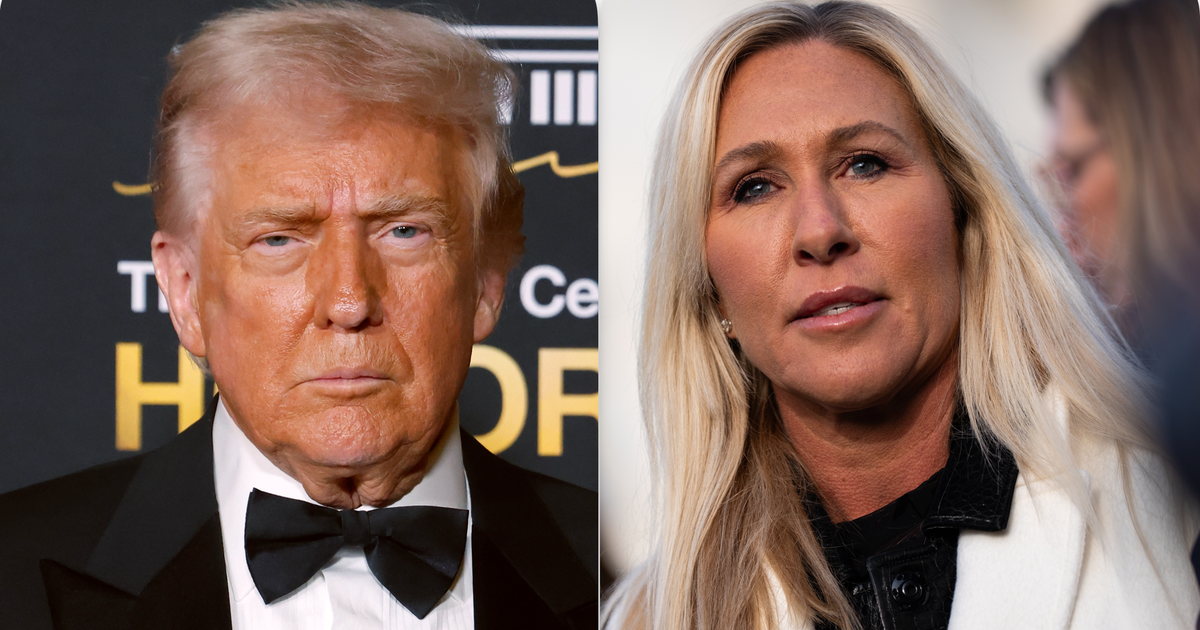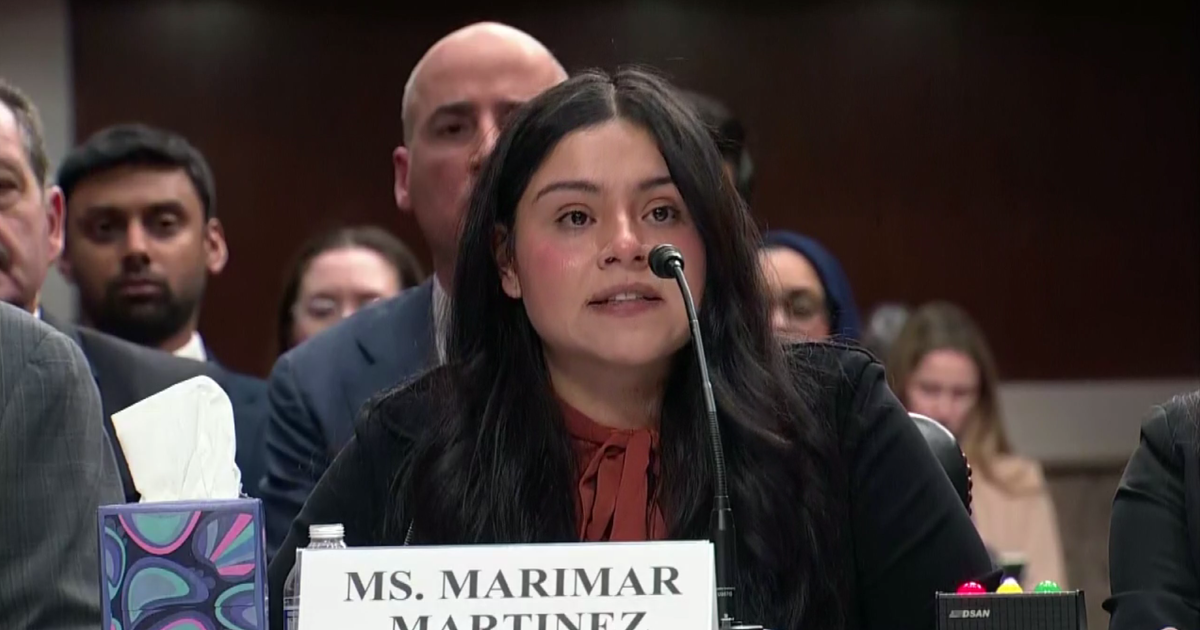Sessions: Program Known As DACA Is Being Rescinded
WASHINGTON (AP/CBSDFW.COM) - The Trump administration has announced that it will wind down a program protecting young immigrants from deportation.
Attorney General Jeff Sessions on Tuesday called the program known as DACA as an "unconstitutional exercise of authority by the executive branch."
He says the Trump administration is urging Congress to find an alternate way to protect young immigrants brought into the country illegally as children.
"The program known as DACA that was effectuated under the Obama administration is being rescinded," U.S. Attorney General Jeff Sessions says. "President Obama was nullifying part of a law that he simply disagreed with."
"We are people of compassion...But there's nothing compassionate about the failure to enforce immigration laws," Sessions said.
Trump had suggested in an earlier tweet Tuesday that it would be up to Congress to ultimately decide the fate of those covered by President Barack Obama's Deferred Action for Childhood Arrivals, or DACA program.
House Speaker Paul Ryan says Barack Obama's existing policy for immigrants brought to the country as children was a "clear abuse of executive authority" and now it's incumbent upon Congress to act.
In a statement Tuesday, the Wisconsin Republican says the heart of the issue is "young people who came to this country through no fault of their own."
Ryan says it is his hope that the House and Senate -- with the president's leadership -- will find consensus on a permanent legislative solution to the issue. He says it is important to ensure that those who have done nothing wrong can still contribute "as a valued party of this great country."
DACA has provided nearly 800,000 young immigrants a reprieve from deportation and the ability to work legally in the U.S.
President Donald Trump released the following statement:
As President, my highest duty is to defend the American people and the Constitution of the United States of America. At the same time, I do not favor punishing children, most of whom are now adults, for the actions of their parents. But we must also recognize that we are nation of opportunity because we are a nation of laws.
The legislative branch, not the executive branch, writes these laws – this is the bedrock of our Constitutional system, which I took a solemn oath to preserve, protect, and defend.
In June of 2012, President Obama bypassed Congress to give work permits, social security numbers, and federal benefits to approximately 800,000 illegal immigrants currently between the ages of 15 and 36. The typical recipients of this executive amnesty, known as DACA, are in their twenties. Legislation offering these same benefits had been introduced in Congress on numerous occasions and rejected each time.
In referencing the idea of creating new immigration rules unilaterally, President Obama admitted that "I can't just do these things by myself" – and yet that is exactly what he did, making an end-run around Congress and violating the core tenets that sustain our Republic.
Officials from 10 States are suing over the program, requiring my Administration to make a decision regarding its legality. The Attorney General of the United States, the Attorneys General of many states, and virtually all other top legal experts have advised that the program is unlawful and unconstitutional and cannot be successfully defended in court.
There can be no path to principled immigration reform if the executive branch is able to rewrite or nullify federal laws at will.
The temporary implementation of DACA by the Obama Administration, after Congress repeatedly rejected this amnesty-first approach, also helped spur a humanitarian crisis – the massive surge of unaccompanied minors from Central America including, in some cases, young people who would become members of violent gangs throughout our country, such as MS-13.
Only by the reliable enforcement of immigration law can we produce safe communities, a robust middle class, and economic fairness for all Americans.
Therefore, in the best interests of our country, and in keeping with the obligations of my office, the Department of Homeland Security will begin an orderly transition and wind-down of DACA, one that provides minimum disruption. While new applications for work permits will not be accepted, all existing work permits will be honored until their date of expiration up to two full years from today. Furthermore, applications already in the pipeline will be processed, as will renewal applications for those facing near-term expiration. This is a gradual process, not a sudden phase out. Permits will not begin to expire for another six months, and will remain active for up to 24 months. Thus, in effect, I am not going to just cut DACA off, but rather provide a window of opportunity for Congress to finally act.
Our enforcement priorities remain unchanged. We are focused on criminals, security threats, recent border-crossers, visa overstays, and repeat violators. I have advised the Department of Homeland Security that DACA recipients are not enforcement priorities unless they are criminals, are involved in criminal activity, or are members of a gang.
The decades-long failure of Washington, D.C. to enforce federal immigration law has had both predictable and tragic consequences: lower wages and higher unemployment for American workers, substantial burdens on local schools and hospitals, the illicit entry of dangerous drugs and criminal cartels, and many billions of dollars a year in costs paid for by U.S. taxpayers. Yet few in Washington expressed any compassion for the millions of Americans victimized by this unfair system. Before we ask what is fair to illegal immigrants, we must also ask what is fair to American families, students, taxpayers, and jobseekers.
Congress now has the opportunity to advance responsible immigration reform that puts American jobs and American security first. We are facing the symptom of a larger problem, illegal immigration, along with the many other chronic immigration problems Washington has left unsolved. We must reform our green card system, which now favors low-skilled immigration and puts immense strain on U.S. taxpayers. We must base future immigration on merit – we want those coming into the country to be able to support themselves financially, to contribute to our economy, and to love our country and the values it stands for. Under a merit-based system, citizens will enjoy higher employment, rising wages, and a stronger middle class. Senators Tom Cotton and David Perdue have introduced the RAISE Act, which would establish this merit-based system and produce lasting gains for the American People.
I look forward to working with Republicans and Democrats in Congress to finally address all of these issues in a manner that puts the hardworking citizens of our country first.
As I've said before, we will resolve the DACA issue with heart and compassion – but through the lawful Democratic process – while at the same time ensuring that any immigration reform we adopt provides enduring benefits for the American citizens we were elected to serve. We must also have heart and compassion for unemployed, struggling, and forgotten Americans.
Above all else, we must remember that young Americans have dreams too. Being in government means setting priorities. Our first and highest priority in advancing immigration reform must be to improve jobs, wages and security for American workers and their families.
It is now time for Congress to act!
Former President Barack Obama released the following statement:
Immigration can be a controversial topic. We all want safe, secure borders and a dynamic economy, and people of goodwill can have legitimate disagreements about how to fix our immigration system so that everybody plays by the rules.
But that's not what the action that the White House took today is about. This is about young people who grew up in America – kids who study in our schools, young adults who are starting careers, patriots who pledge allegiance to our flag. These Dreamers are Americans in their hearts, in their minds, in every single way but one: on paper. They were brought to this country by their parents, sometimes even as infants. They may not know a country besides ours. They may not even know a language besides English. They often have no idea they're undocumented until they apply for a job, or college, or a driver's license.
Over the years, politicians of both parties have worked together to write legislation that would have told these young people – our young people – that if your parents brought you here as a child, if you've been here a certain number of years, and if you're willing to go to college or serve in our military, then you'll get a chance to stay and earn your citizenship. And for years while I was President, I asked Congress to send me such a bill.
That bill never came. And because it made no sense to expel talented, driven, patriotic young people from the only country they know solely because of the actions of their parents, my administration acted to lift the shadow of deportation from these young people, so that they could continue to contribute to our communities and our country. We did so based on the well-established legal principle of prosecutorial discretion, deployed by Democratic and Republican presidents alike, because our immigration enforcement agencies have limited resources, and it makes sense to focus those resources on those who come illegally to this country to do us harm. Deportations of criminals went up. Some 800,000 young people stepped forward, met rigorous requirements, and went through background checks. And America grew stronger as a result.
But today, that shadow has been cast over some of our best and brightest young people once again. To target these young people is wrong – because they have done nothing wrong. It is self-defeating – because they want to start new businesses, staff our labs, serve in our military, and otherwise contribute to the country we love. And it is cruel. What if our kid's science teacher, or our friendly neighbor turns out to be a Dreamer? Where are we supposed to send her? To a country she doesn't know or remember, with a language she may not even speak?
Let's be clear: the action taken today isn't required legally. It's a political decision, and a moral question. Whatever concerns or complaints Americans may have about immigration in general, we shouldn't threaten the future of this group of young people who are here through no fault of their own, who pose no threat, who are not taking away anything from the rest of us. They are that pitcher on our kid's softball team, that first responder who helps out his community after a disaster, that cadet in ROTC who wants nothing more than to wear the uniform of the country that gave him a chance. Kicking them out won't lower the unemployment rate, or lighten anyone's taxes, or raise anybody's wages.
It is precisely because this action is contrary to our spirit, and to common sense, that business leaders, faith leaders, economists, and Americans of all political stripes called on the administration not to do what it did today. And now that the White House has shifted its responsibility for these young people to Congress, it's up to Members of Congress to protect these young people and our future. I'm heartened by those who've suggested that they should. And I join my voice with the majority of Americans who hope they step up and do it with a sense of moral urgency that matches the urgency these young people feel.
Ultimately, this is about basic decency. This is about whether we are a people who kick hopeful young strivers out of America, or whether we treat them the way we'd want our own kids to be treated. It's about who we are as a people – and who we want to be.
What makes us American is not a question of what we look like, or where our names come from, or the way we pray. What makes us American is our fidelity to a set of ideals – that all of us are created equal; that all of us deserve the chance to make of our lives what we will; that all of us share an obligation to stand up, speak out, and secure our most cherished values for the next generation. That's how America has traveled this far. That's how, if we keep at it, we will ultimately reach that more perfect union.
(© Copyright 2017 CBS Broadcasting Inc. All Rights Reserved. The Associated Press contributed to this report.)
